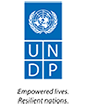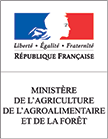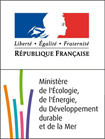- Cafe adapt: Planning and investing in climate resilient coffee landscapes
- The initiative for coffee and climate
In the 2014 Climate Report of the Intergovernmental Panel on Climate Change (IPCC), multiple studies are quoted on evidence for observed impacts and forecasts of the potential effects of climate change on coffee production in Central and South America, Africa and Asia. To avoid economic losses across the coffee supply chain, preservation of important ecosystem services, provision of a viable and resilient livelihood to coffee-producing communities, and strategic and collective action and investments are necessary.
Coffee is regarded as a lead indicator for sustainable commodity crops; it often sets the pace and others follow. The necessary adaptation measures are directly in line with the targets and priorities of most Sustainable Development Goals (SDGs), amongst others; the ending of poverty (SDG1), the promotion of sustainable agriculture (SDG2), ensuring sustainable production and consumption (SDG12), urgent action to combat climate change (SDG13), protect, restore and promote sustainable use of terrestrial ecosystems, halt and reverse land degradation and halt biodiversity loss (SDG15).
Coffee is being produced in some of the world’s important biodiversity hotspots, occupying large areas at mid elevations in the tropics. Building up resilience to increasing climate variability is a challenge faced not only by coffee farmers. HIVOS encourages research to develop innovative and viable adaptation strategies. At this Forum, our research and practitioner partners will provide a synthesis of ongoing and recently concluded case studies:
- Hivos and IIED with support of CIAT. Payments for Ecosystem Services (PES) Learning Trajectory: Highlights from six projects in five countries – exploring the use of carbon projects in smallholder farming and the feasibility of PES as incentives to promote a shift to sustainable smallholder agriculture.
- Hivos and Copernicus Institute (University of Utrecht). Insights into economic and biodiversity performance from coffee plantations: Shedding new light on the benefit cost ratio of management systems along the intensification gradient in a landscape and helping policy makers and entrepreneurs alike to take management decisions in favor of biodiversity and farmer resilience.
- Hivos and Bioversity International, as part of the ongoing CGIAR Research Program in Climate Change, Agriculture and Food Security (CCAFS), the research aims to determine a climate smart scorecard to evaluate agro-ecological practices in support of adaptation to climate change, based on farmers needs and climate scenarios.
Three researchers will set the scene, based on their recent work in landscapes with strong coffee production. Two practitioners working with smallholder farmers or representing their organizations, will put the research into perspective. The session moderator will interview both, then the audience will be invited to take part in a moderated panel discussion.
Key questions addressed
- What is the relationship between fostering biodiversity in the coffee agroecosystem and its economic performance?
- Could Payments for Ecosystem Services (PES) promote a shift to sustainable smallholder coffee production?
- What are the essential elements of cost-effective Climate Smart Agriculture (CSA) practices in coffee landscapes?
Background reading
Jezeer, R and Verweij, P. (2015) Shade grown coffee, double dividend for biodiversity and small-scale farmers in Peru (available by mid October 2015)
Guide for Financing Climate-Related Activities in the Coffee Sector
A bitter cup: climate change profile of global production of Arabica and Robusta coffee
Country specific business cases build the case for sustainable coffee production





































